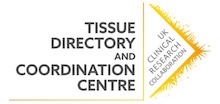Nottingham takes Biobanking to Parliament
The University of Nottingham will be taking Biobanking to Parliament next month.
The UK Biobanking Timebomb: Maintaining Public Trust in Medical Research will be held at 2.30pm on the 25th October in Westminster as part of Nottingham in Parliament day. The day will be a celebration of the leadership the UK has shown in this field but also seeking improvements that can facilitate a streamlined and supportive research infrastructure for the future.
Speakers
Professor Jonathan Montgomery, Chair, HRA
Allan Marriott-Smith, CEO, HTA
Dr Virginia Acha, Executive Director – Research, Medical and Innovation, ABPI
Summary
Biobanks are the organisations that store and share human samples for research, they thereby underpin countless advances in medical science. The UK enjoys a strong regulatory framework that ensures that those donating samples are well informed. This has resulted in strong public support for biobanking.
There are several pressures building that are making Biobanking a more complex environment to operate and as such these challenges could threaten these vital research resources. We wish to address some of the key challenges, such as the reward systems, access to the vital clinical datasets (without which samples are of less use) and how we can build a national strategy for the collection and use of these valuable resources in a way that maintains the strong public trust and support.
Area of focus
Biobanks can represent significant investments and the UK has long enjoyed strong investment from research councils and research charities. The sustainability of Biobanking, the ability for them to be financed long-term, is a challenge. The reason we believe this is a potential time-bomb is because the risk that funding cannot be continued could result in Biobanks having to make some difficult decisions. We are not seeking additional funding, but wish to tackle some of the associated costs (real or perceived) in order to help achieve sustainable and flexible research infrastructure for the future.
Discussion Points
1. Recognition of Biobanking activities
It is costly to operate a Biobank, but capturing their impact can be hard. As Biobanks often operate within academic institutions their value is assessed in a similar way to a research academic (publications and research funding). Is there an alternative way to recognise the important roles Biobanks play within the UK research infrastructure? If the full impact and benefit of Biobanks cannot be recognised then the risk is that they are perceived solely as an expense with little recognised benefit.
2. Biobank accreditation and data access
The term Biobank can mean many different things to different people. Should we have an accreditation scheme in place, so that once Biobanks are an accredited part of health and research infrastructure access to other national infrastructure can be streamlined? Can a level of accreditation be issued to Biobanks to allow them certain privileges?
3. Linkage with the Organ Donor card
Patient consent is a vital component of modern biobanking. The UK enjoys strong regulatory support in this area and are the envy of many other European countries. At present each Biobank can consent the same patient but there is no central record of the consent, can a national consent record be developed, similar to the national donor registry? Can a Dynamic consent model for all diagnostic samples be instigated?
Are you a Biobank that has a message you want us to raise? Let us know!
